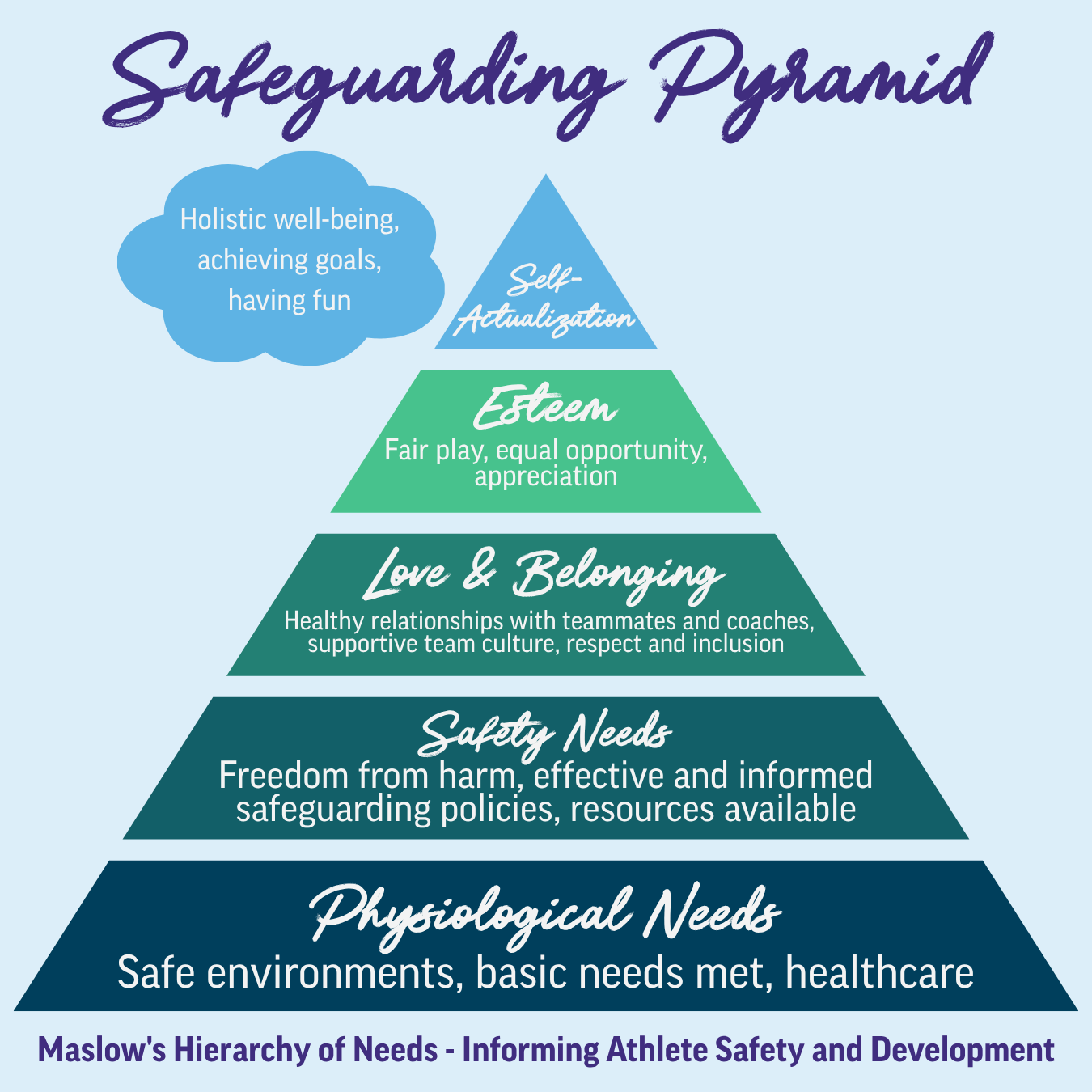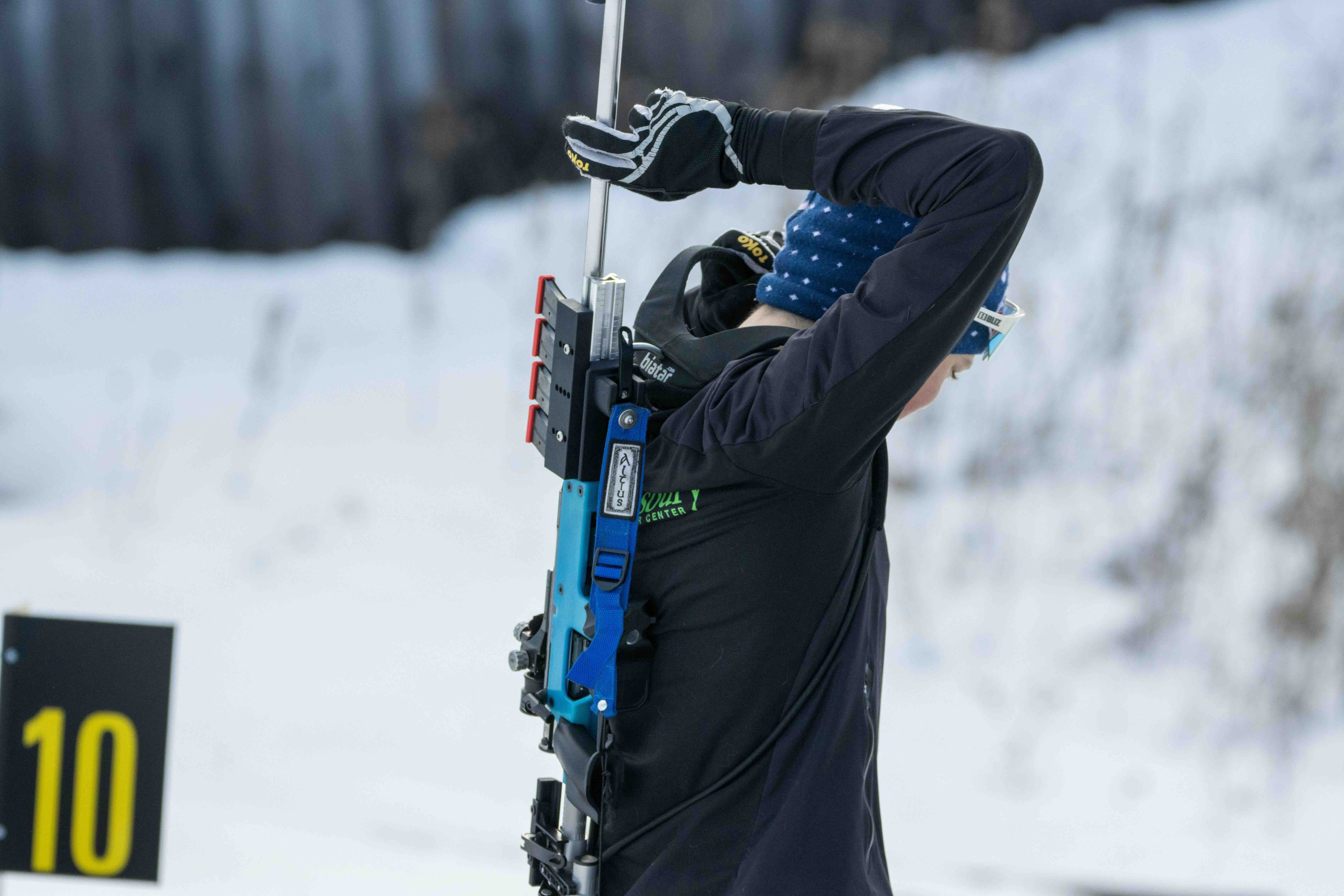
When we support athletes foundationally and holistically, they are poised to gain the benefits of sports, reach their goals, and win well. Meaning that when athletes’ needs are supported and met, they can enjoy sport and perform at their best.
This Safeguarding Pyramid framework and tool have been adopted and inspired by motivational psychology. Learning from A.H. Maslow’s Theory of Human Motivation — the “Hierarchy of Needs,” featured below — it is demonstrated that individuals have needs or conditions to be satisfied to meet their goals. In Maslow’s Hierarchy of Needs, we can visually see Maslow’s theory that individuals can move up the pyramid as they satisfy prior needs.

Thus, once our basic needs are met, we can better focus on the next thing, and so on. For instance, when we have food, shelter, and supportive relationships, we are better set up to pursue our hobbies or excel at work. Instead, if we find ourselves with those foundational needs unmet, we will likely focus our time and energy on meeting needs in those domains. Do note that individuals can pursue needs simultaneously, and we are all unique, meaning we might prioritize them differently.
Similarly, in sporting environments, when athletes are supported by safe, healthy conditions, they can focus on the game — the top of the pyramid. This Safeguarding Pyramid, featured below, can serve as a framework and tool for organizations, athletes, and sport stakeholders to fundamentally visualize the building blocks and components of athlete-centered safeguarding.

Starting at the bottom, Physiological Needs, applies to safeguarding necessities pertaining to physical safety. This means providing and ensuring that athletes train and compete in safe physical environments and have access to water, nutrition, and medical and mental healthcare. Tangibly, for example, does your club or organization have a lightning policy and protocol for outdoor sports? Are athletes getting extra hydration in hot climates? Have athletes been educated on healthy eating? Does your program follow doctors' orders on safe return from injury?
Moving up, Safety Needs applies to athletes practicing, training, and competing in environments free from harm, abuse, and misconduct. This means effective and informed safeguarding policies are in place, whistleblowers are protected, and athlete-survivors are supported. Additionally, this means resources are available and provided regarding abuse prevention education, trauma-informed reporting, response, and resolution practices are in place, and speaking out against abuse is encouraged.
Next, Love and Belonging, refers to athletes having healthy relationships with teammates and coaches, a supportive team culture, and feeling respected and included. This means athletes are training and competing in environments free of unhealthy relationship dynamics that leverage power and control over care and support. This includes having a code of conduct that outlines behavioral expectations, with a safeguarding policy that addresses these concerns, compassionate and strength-based coaching styles, and asking athletes for consent and respecting their boundaries.
Second to the top, Esteem applies to fair play, equal opportunity, and appreciation for athletes. This means athletes are treated equitably and everyone is playing by the same rules. Esteem also applies to integrity in sports, including anti-doping, gameplay regulations, and selection criteria for advancement in sport. Additionally, this includes respectful and accurate regard from the media and fans.
Then, at the top, Self-Actualization demonstrates the pinnacle of what the building blocks have supported: athletes are better able to achieve their goals and have fun as their holistic well-being is valued across every domain. Ultimately, when sporting cultures are safe and protect athletes, athletes are free, empowered, and can thrive.
For support with bolstering the components of the safeguarding pyramid at your sporting organization, reach out to info@weridetogether.today.
If you or someone you know needs support, please visit our Crisis Resources or Resources for assistance.
Kathryn McClain, MSW, MBA
Program and Partnerships Director at #WeRideTogether
kmcclain@weridetogether.today



.png)
